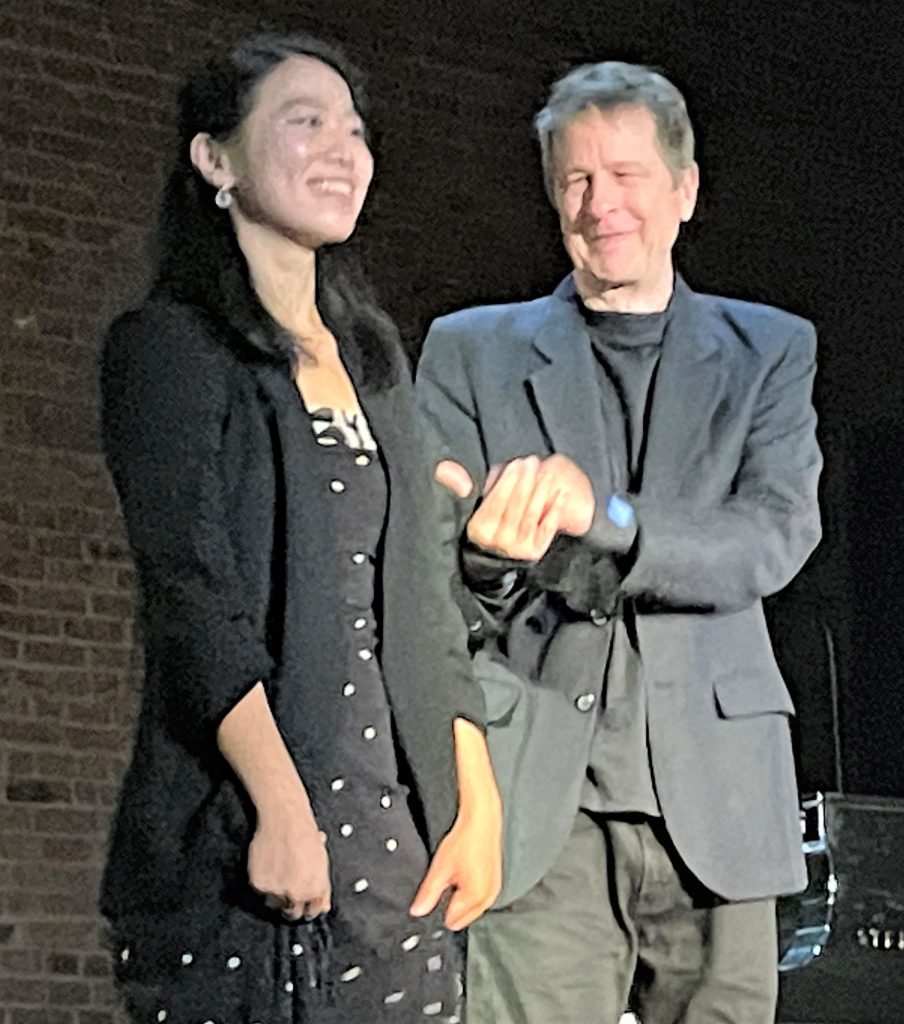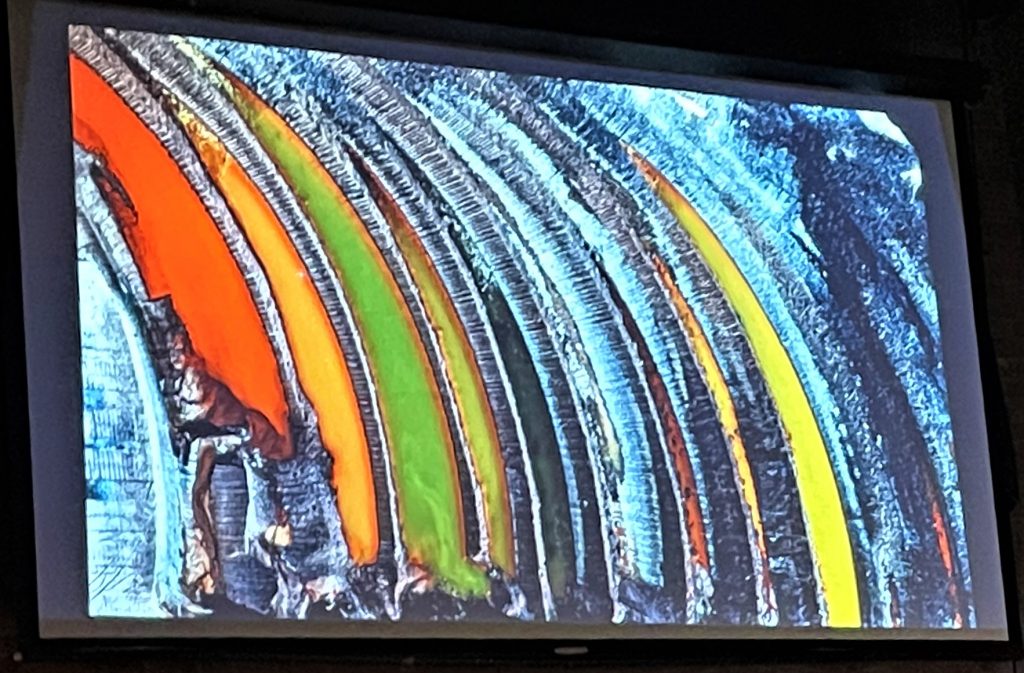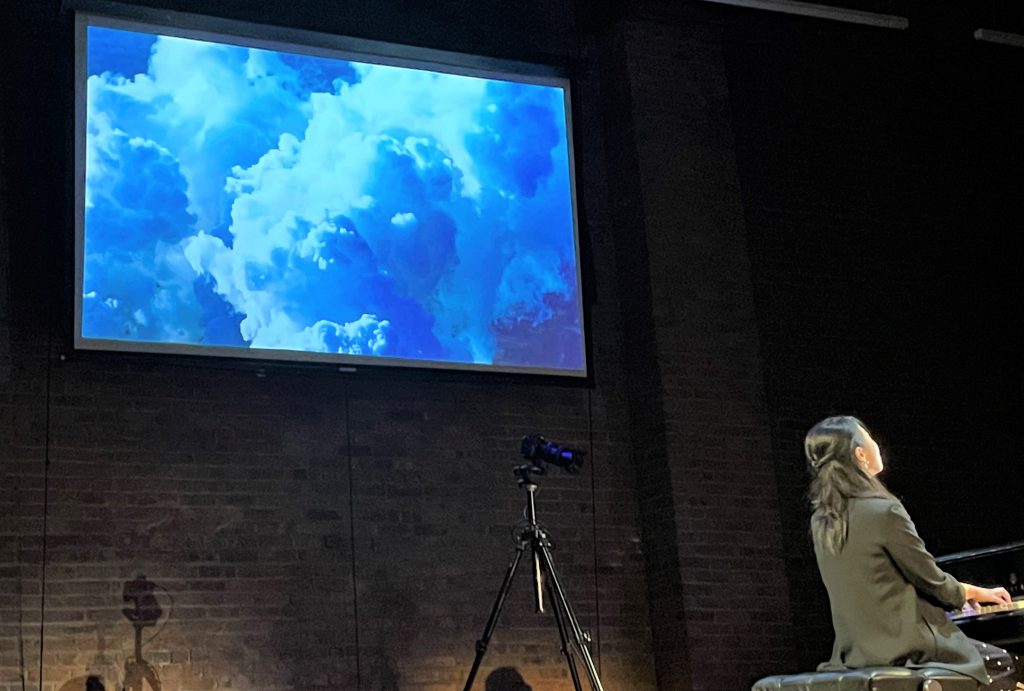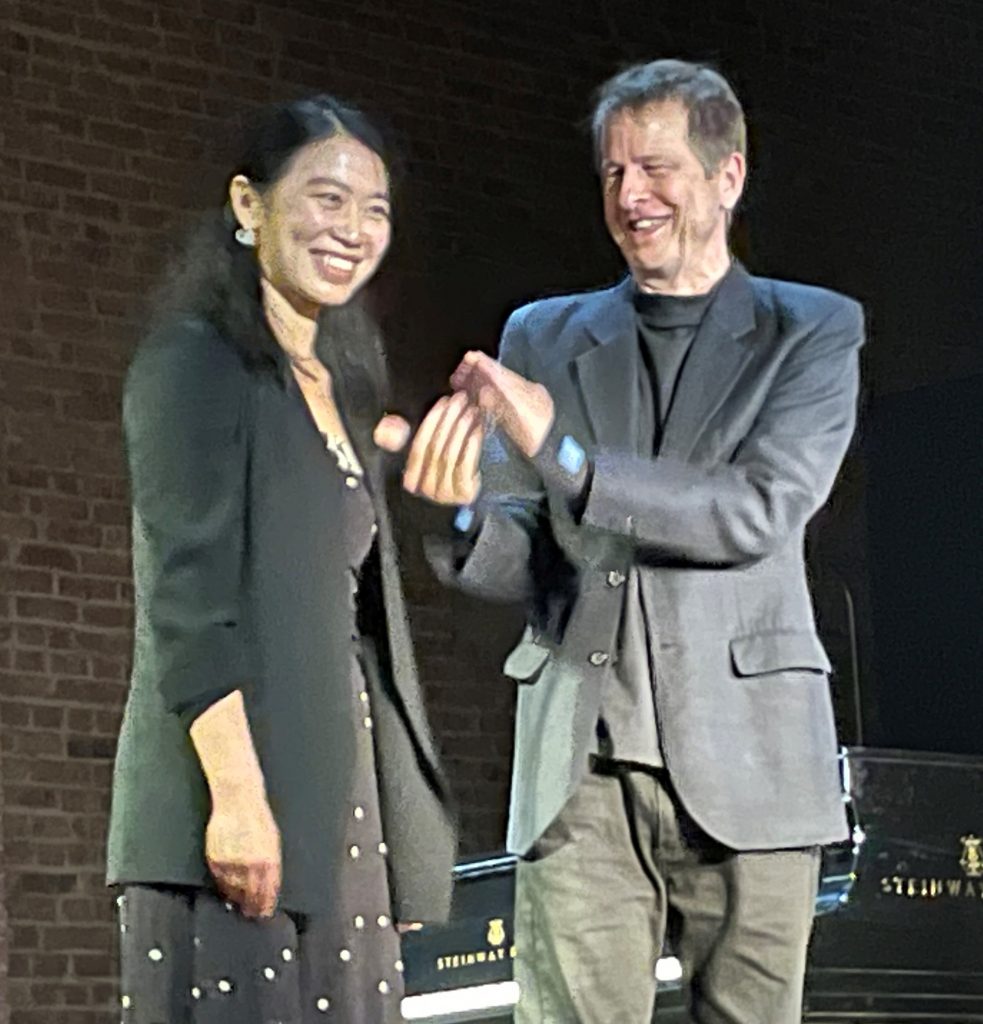
by Kevin T McEneaney
Last Sunday in The Stissing Center concert hall with its wonderful acoustics (Pine Plains), Sophia Zhou was at the keyboard playing the complete cycle of Goldberg Variations by J.S. Bach (1685-1750) on a 1913 Model A Steinway. Her playing was clear, liquid, brimming with spontaneous joy—just as Bach would have desired it to be performed. Sophia played in the European style from memory which permits the performer access to a more spontaneous immersion in musical flow. Normally, one cannot see the pianist’s fingering as digits dance across black and white keys, nor can the audience usually witness cross-arm expertise; this was made available through live camera transmission on a large screen, yet that was not all which was happening each second! Visual artist J Henry Fair, whose work has been featured in National Geographic magazine, endowed the performance with contemporary relevance.
Background: The Russian ambassador to Dresden, Hermann Carl von Keyserlingk (who appointed Bach as court composer in Dresden), remarked to Bach that he would like to have a few keyboard pieces for his insomnia, which his personal pianist Goldberg could play. Bach composed this nearly one-hour cycle with a basic harmony ringing multiple variations as pleasant night music. The count was delighted with the result and rewarded Bach most handsomely, and subsequently referred to this cycle as my variations (since he had purchased them). This delightful cycle is often played in Germany and Russia, yet not often played in the United States for some obscure reason. (Violinist, composer, and conductor Dmitry Sitkovetsky has arranged an orchestral version which can be purchased on the Nonesuch label.)

Visual Art: The title of the concert was Bach Versus the Climate Crisis. Bach’s Goldberg Variations happens to echo the period complexity of German mathematics, scientific investigation and procedure, even engineering. Coal was the transformative energy if the industrial revolution. Nearby Leipzig was the source of German coal both then and now. Today, 30% of Germany’s energy still comes from coal. (In the United States 21.6% of our energy still comes from coal; in West Virginia it is 89%.) Interspersed with the live video feed of Sophia’s hands performing Bach, there were videos of polluting coal plants in Germany, close up colorful images of the spectrums of color embedded in coal, landscape video of mountains ravaged and destroyed by coal, and some contrasting relief of rural farms, woodland, and fields apparently at first sight uncontaminated visually by mining yet by implication contaminated by descending clouds of acidity that damage the rural landscape as well as some depictions of smoke-filled city streets and high-rise apartments engulfed in acid smoke. The lungs of citizens in Germany, West Virginia, and many other cities and farmlands are still being damaged in addition to the rural hinterlands.

History: Bach lived and composed in Leipzig for much of his life. Air pollution began during Bach’s life and continues each day in Leipzig (where the mother-load of coal resides) and around this dizzy globe. Senator Joe Manchin wants more of this pollution to continue and even increase. This presentation of music and video offered dramatic contrast: do we wish to have the better qualities of humankind (as in the music of J.S. Bach) to prevail in our science, engineering, and health as we move forward in time, or do we prefer the stasis of the past to dominate our habits and bring more destruction and degradation for future generations? Do you prefer the future apocalyptic woes of climate change to the divine, consoling music of Bach?
Art: Can the moral voices of artists influence change? Contrast is a vital and effective artistic tool. My friend Tonia pointed out the precedent of Phillip Glass’ music for the 1982 film Koyaanisqatsi: Life Out of Balance,which juxtaposed images of landscape over the course of European settlement, contrasting with the often degrading ravagement (river and lake pollution, forest clear-cutting, etc.) of the primal North American landscape.
Now: I envision this premiere touring this country and other countries, especially Germany, England, and Canada (and even Russia if it ever returns to common sense and freedom of speech).

P. S. If musicians want to make a statement about our climate crisis, how do they do it? Write a letter? That’s not their field; they speak a language older than any ancient language: we danced and sang nonsense songs before words arrived to sort out life’s difficulties and offer a future which some people want to end with illness, cruelty, contempt for life which they claim to hold dear. (The music section of our brain is far older than our more recent language neurons, which is why musicians can in old age still play tunes preserved in the most protected section of the brain.)